site search
online catalog
US MODEL 1842 PISTOL BY ASTON MADE IN EARLY 1852
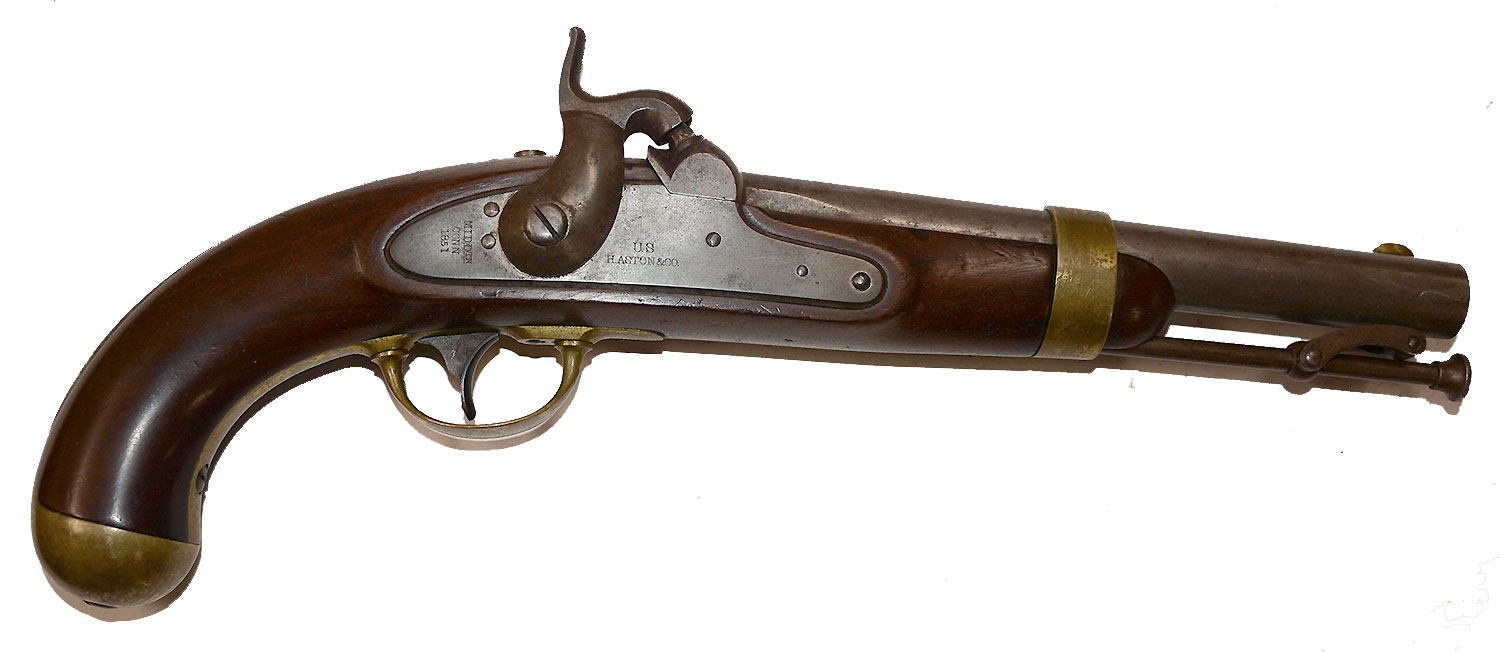
Hover to zoom

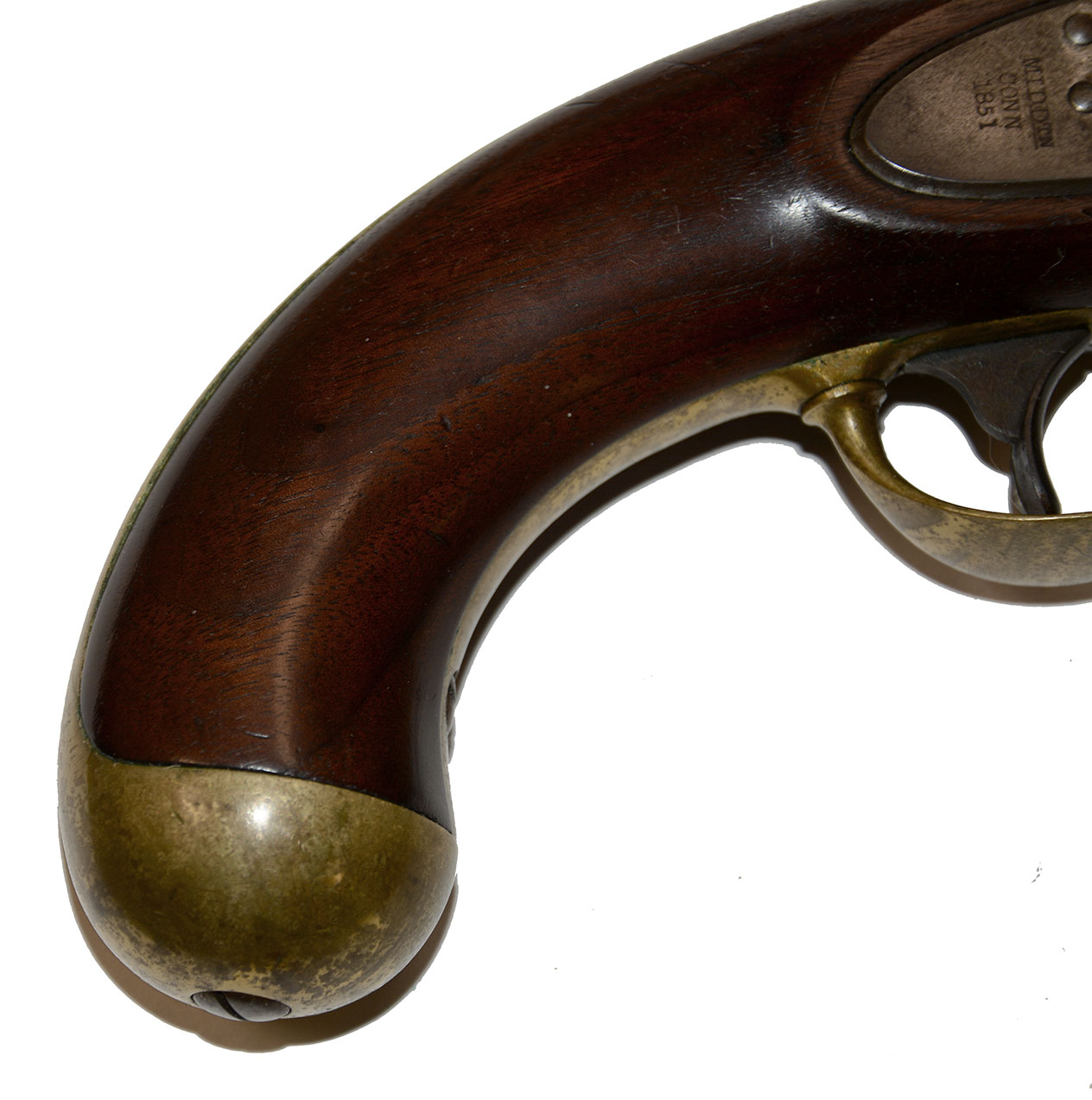
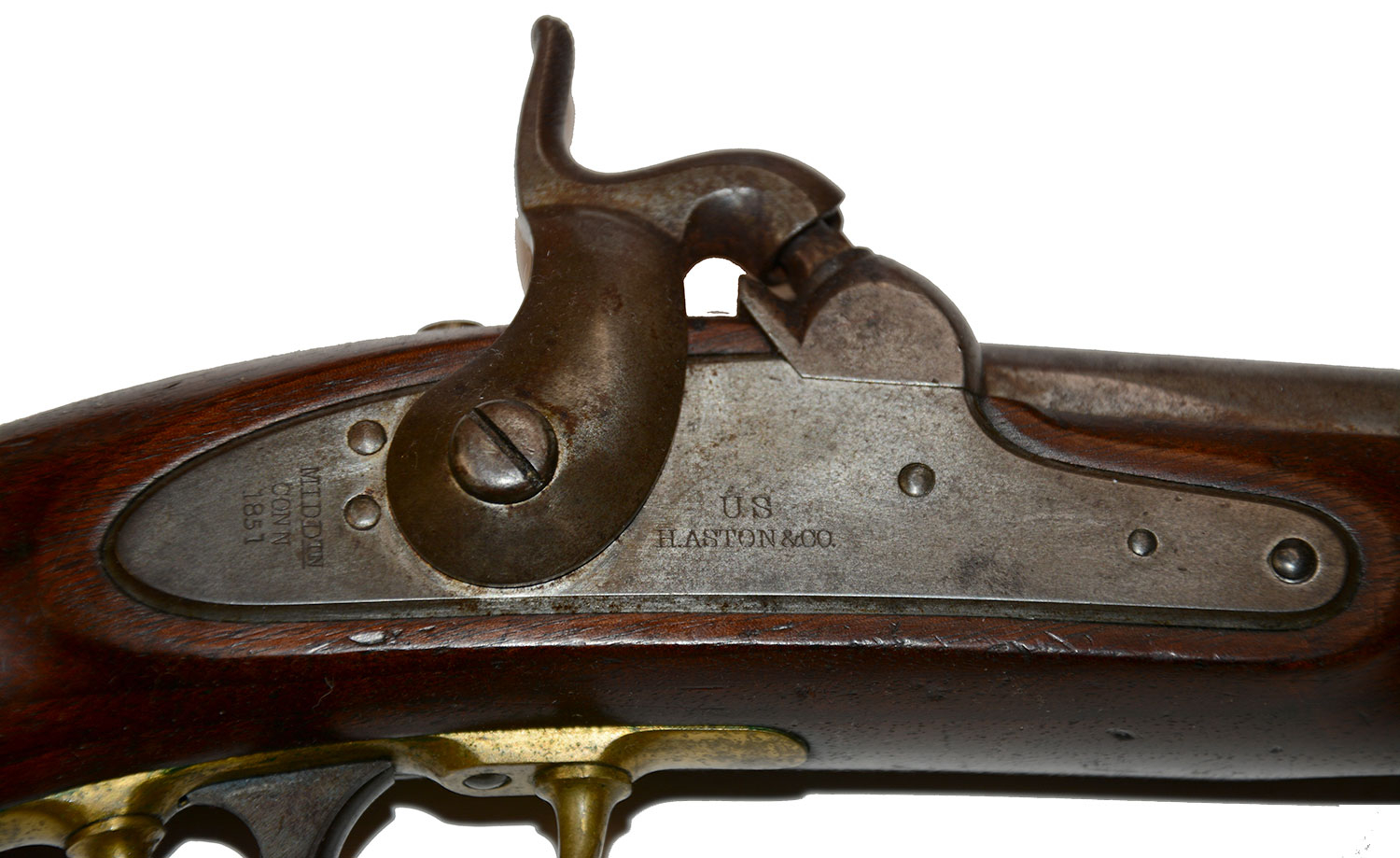

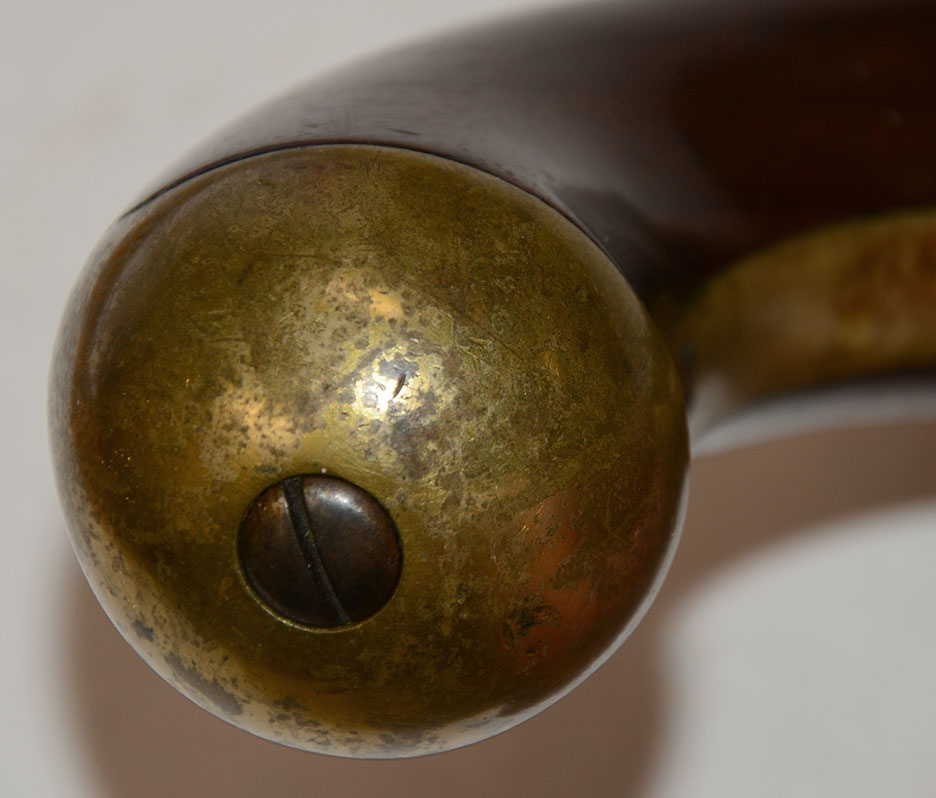
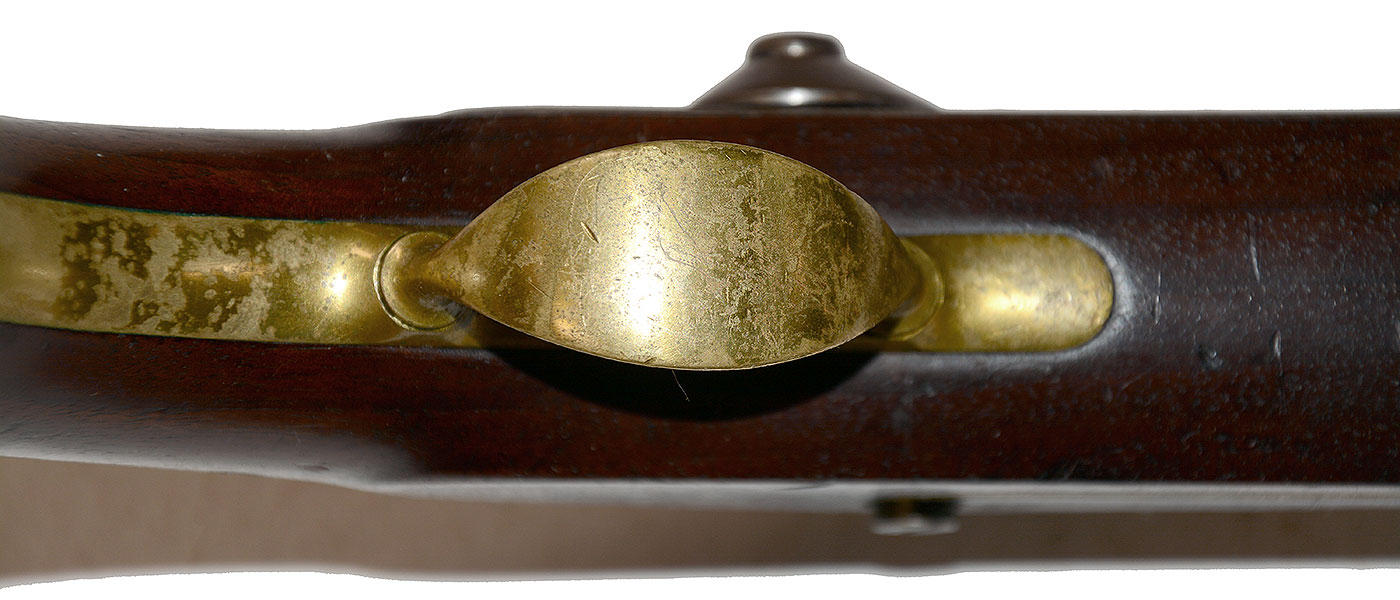

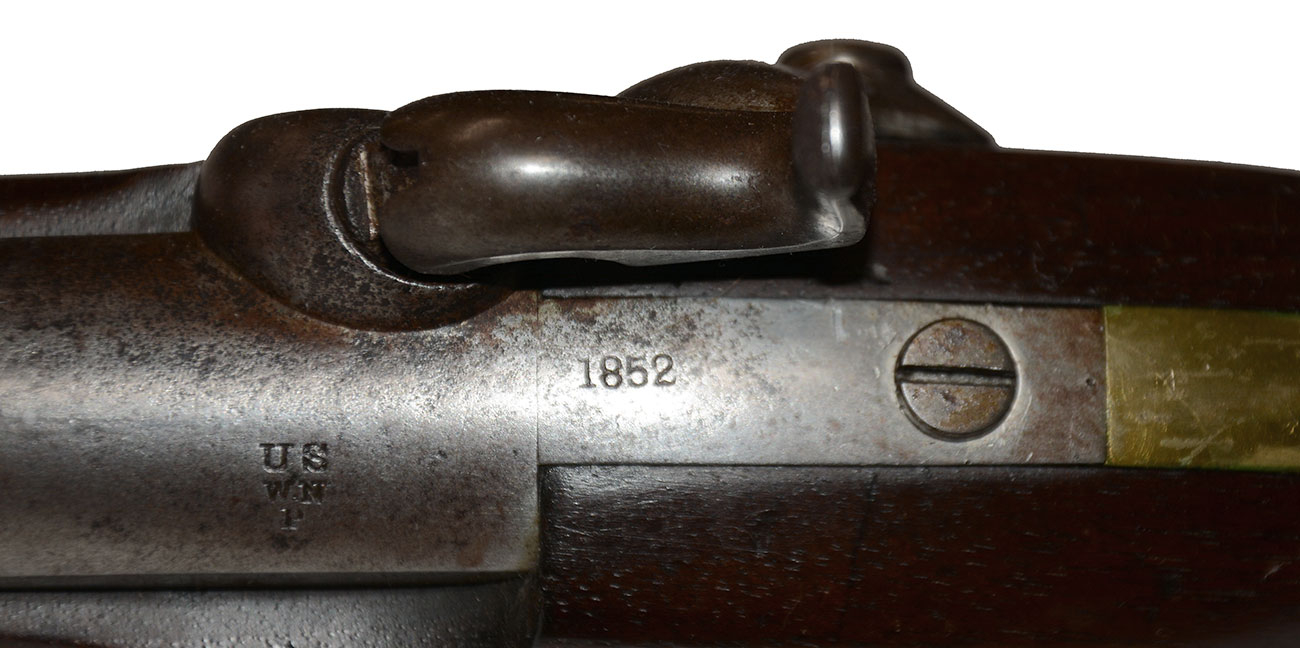
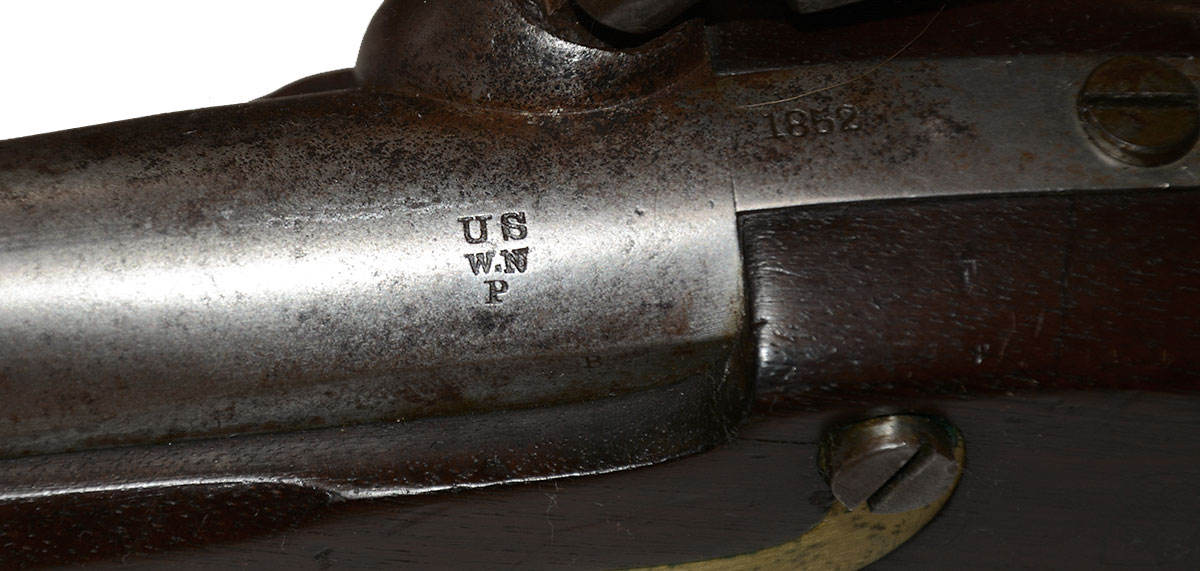
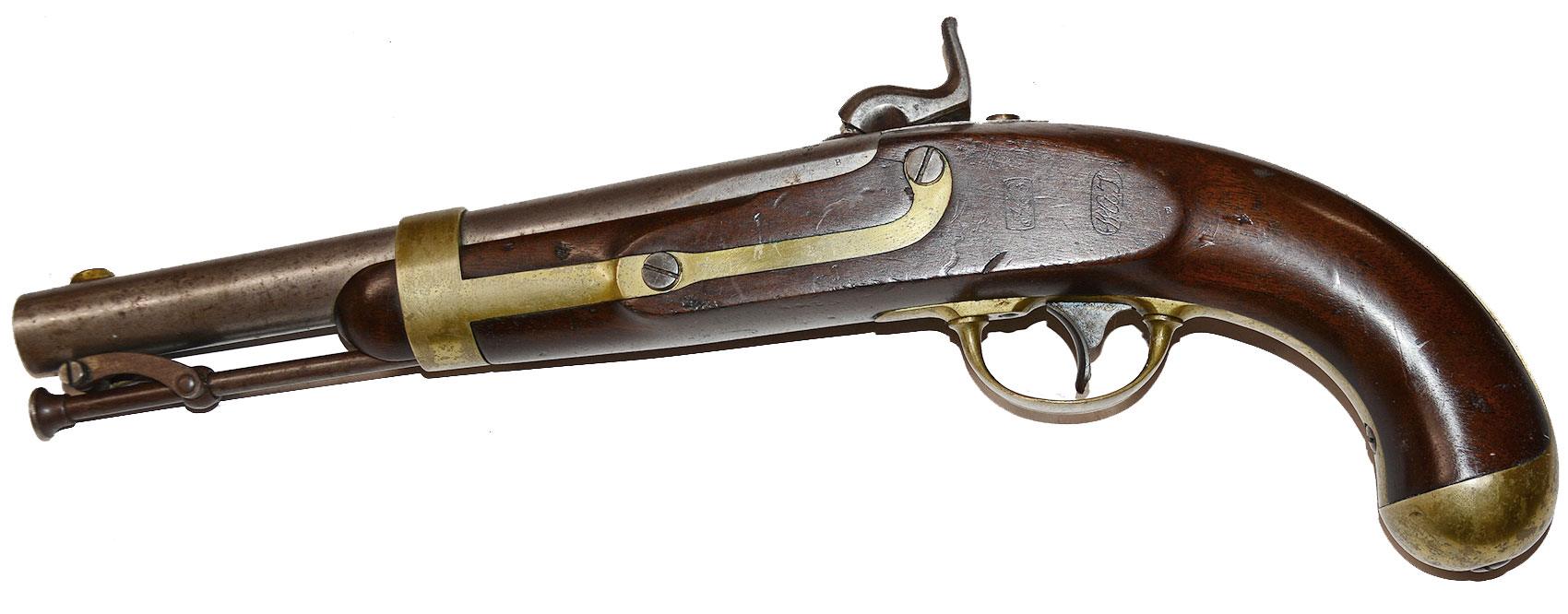
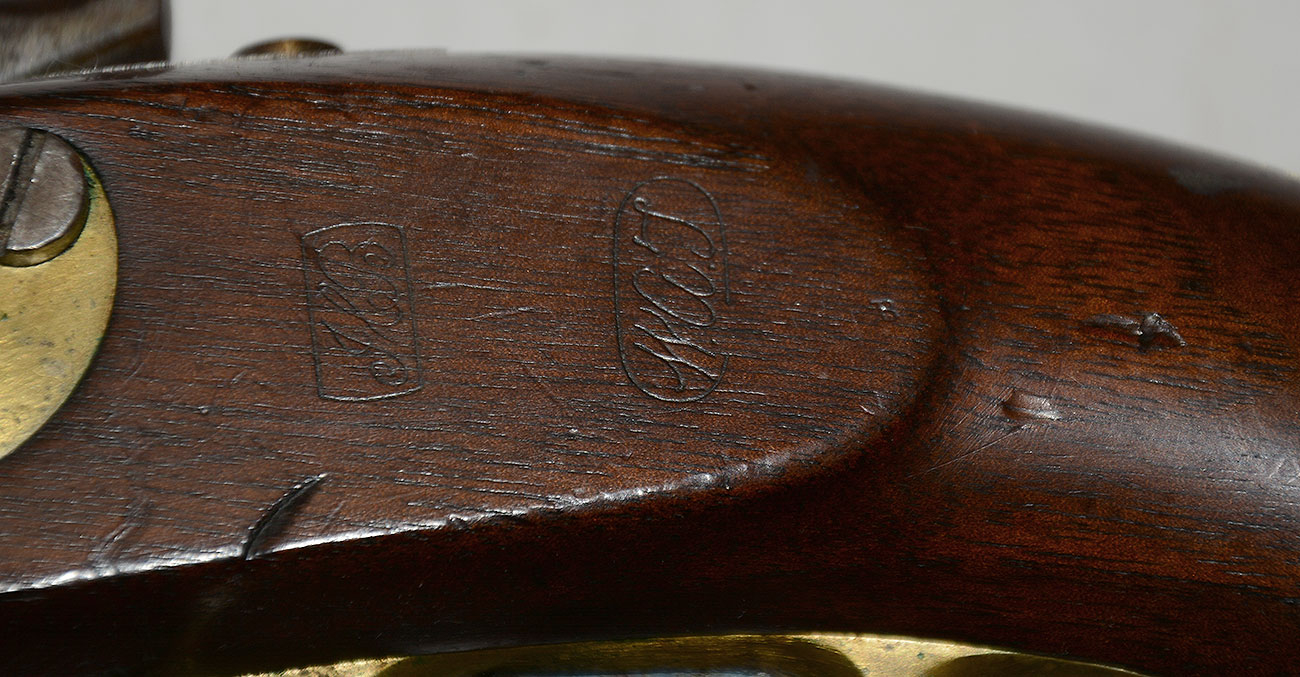
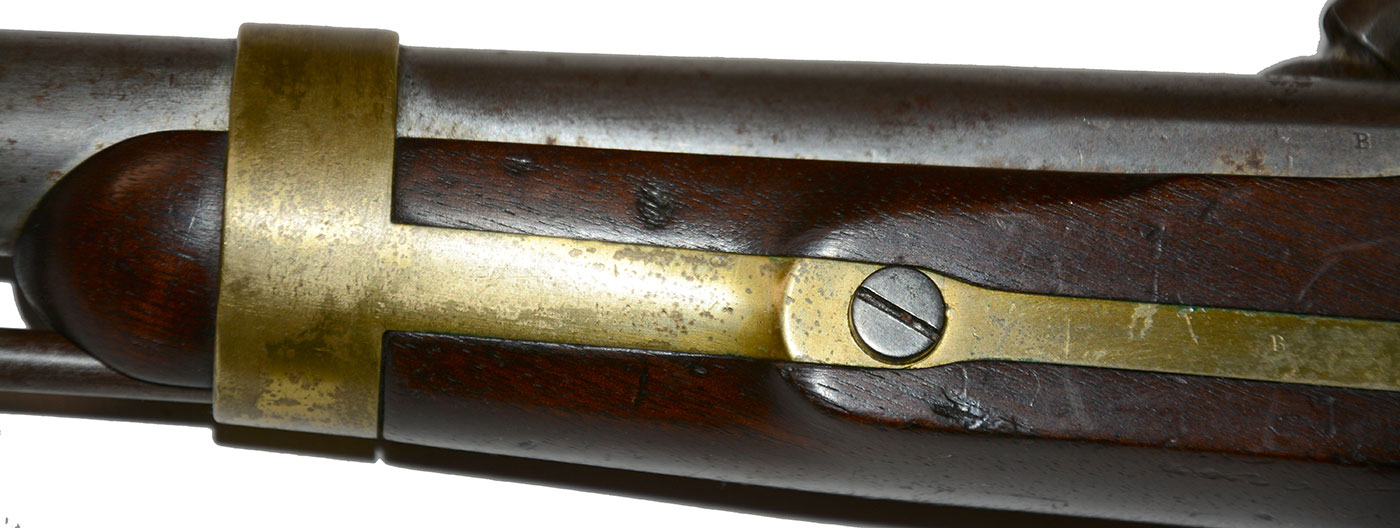
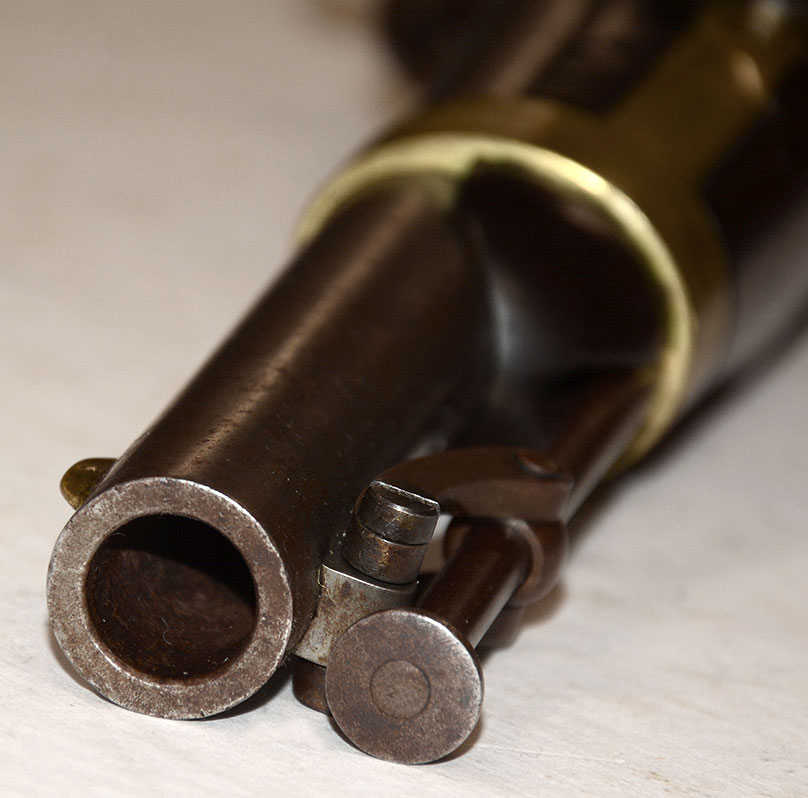
$1,150.00 SOLD
Quantity Available: None
Item Code: 490-5704
The last of the US single shot martial pistol and first of the US percussion pistols, the US Model 1842 percussion pistol was successor to the flintlock Model 1836 and like that earlier pistol was intended to be carried by mounted troops in pairs, one in each pocket of the holsters strapped across the pommel of the saddle. They were intended for use by both US forces and state militias. Some saw early-war service in Confederate cavalry drawing from militia stores, and even some later service in southern rear-echelon and local guard units, but revolvers had become the sidearm of choice in the 1850s.
This is a very strong example made by Henry Aston under his second US contract of 1851-52 for 6,000 pistols, on top his first contract for 24,000 from 1846 to 1851. A Third contract, with Ira N. Johnson, an Aston business partner who bought the factory and assets, brought the government another 10,000 from 1853 to 1855. (William Glaze also produced his non-US contract Palmetto Armory version in South Carolina.) The pistols were single-shot, .54 caliber smooth-bores, and were fitted with a captive, swivel ramrod, in the hope a trooper might actually be able to reload his pistol while mounted, and not lose the ramrod in the process, if he tried. They were mounted with brass butt cap triggerguard with long strap, backstrap, sidelate and barrel band, screw fastened by an rearward extension using the forward lock screw. All in all, these are hefty, robust pistols.
All markings are sharp. The lock is stamped forward of the hammer, US / H. ASTON & CO. (the proper marking for these second contract pistols) and MIDDTN/ CONN/1851 to the rear. The barrel proof at left breach reads US/ WN / P, indicating inspection by Walter North (grandson of famous arms maker Simeon North,) who worked at the Springfield Armory and was an inspector of contract arms in the 1850s. The breechplug tang has a crisp 1852 date indicating the pistol was assembled early that year, with lock production frequently outpacing that of barrels, which might fail in boring, proof, etc. The wood has two crisp script inspection cartouches on the side flat: the final ordnance acceptance stamp “W.A.T.” in script of William A. Thornton, and just forward of that the “JCB” inspection stamp of Joseph C. Bragg, one of nine different inspectors of the Model 1842 pistol at different times, and perhaps familiar to collectors from his inspection of Colt Dragoons, as well as other arms. (We note also what is likely his small “B” on the barrel side-flat at left breach.)
The barrel is smooth metal, silver gray in color, with a little darker, pin-prick salt and peppering just forward of the bolster, likely from the corrosive effects of percussion caps. The bolster and lock show a silver gray also, with the hammer a tad darker and rear of the lockplate a subdued pewter. The brass has an undisturbed, aged patina with some brown stains and traces of what was likely a lacquer finish. The wood has a good fit to the metal, nice brown tones, good edges, no sign of sanding or refinishing, just a few light scratches and handling dings on the lower edge of the sideflat, just above the band extension on the left, etc.
The pistol rates very good overall. The action is fine. The bore is a bit dirty, but will clean. This is a very nice example of a regulation US pistol for mounted troops that is a key piece in tracing the development of cavalry arms. [sr][ph:L]
DISCLAIMER: All firearms are sold as collector's items only - we do not accept responsibility as to the shooting safety or reliability of any antique firearm. All firearms are described as accurately as possible, given the restraints of a catalog listing length. We want satisfied customers & often "under" describe the weapons. Any city or state regulations regarding owning antique firearms are the responsibility of the purchaser. All firearms are "mechanically perfect" unless noted, but again, are NOT warranted as safe to fire!
~~~~~~~~~~~~~~~~~~~~~~~~~~~~~~~~~~~
THIS ITEM, AS WITH ALL OTHER ITEMS AVAILABLE ON OUR WEB SITE,
MAY BE PURCHASED THROUGH OUR LAYAWAY PROGRAM.
CLICK HERE FOR OUR POLICIES AND TERMS.
THANK YOU!
Inquire About US MODEL 1842 PISTOL BY ASTON MADE IN EARLY 1852
Most Popular
Historical Firearms Stolen From The National Civil War Museum In Harrisburg, Pa »
Theft From Gravesite Of Gen. John Reynolds »
Selection Of Unframed Prints By Don Troiani »
Fine Condition Brass Infantry Bugle Insignia »
British Imported, Confederate Used Bayonet »
Scarce New Model 1865 Sharps Still In Percussion Near Factory New »
featured item
MODEL 1851 SWORD BELT PLATE FROM HARPERS FERRY ON A GREAT DISPLAY CARD
This sword belt plate, a very good example of an early pick-up, is mounted on a great old card typical of early relic displays labeled in brown ink, “Officers Belt Plate / battlefield of Harpers Ferry / West Virginia.” The plate has an untouched,… (1202-196). Learn More »


